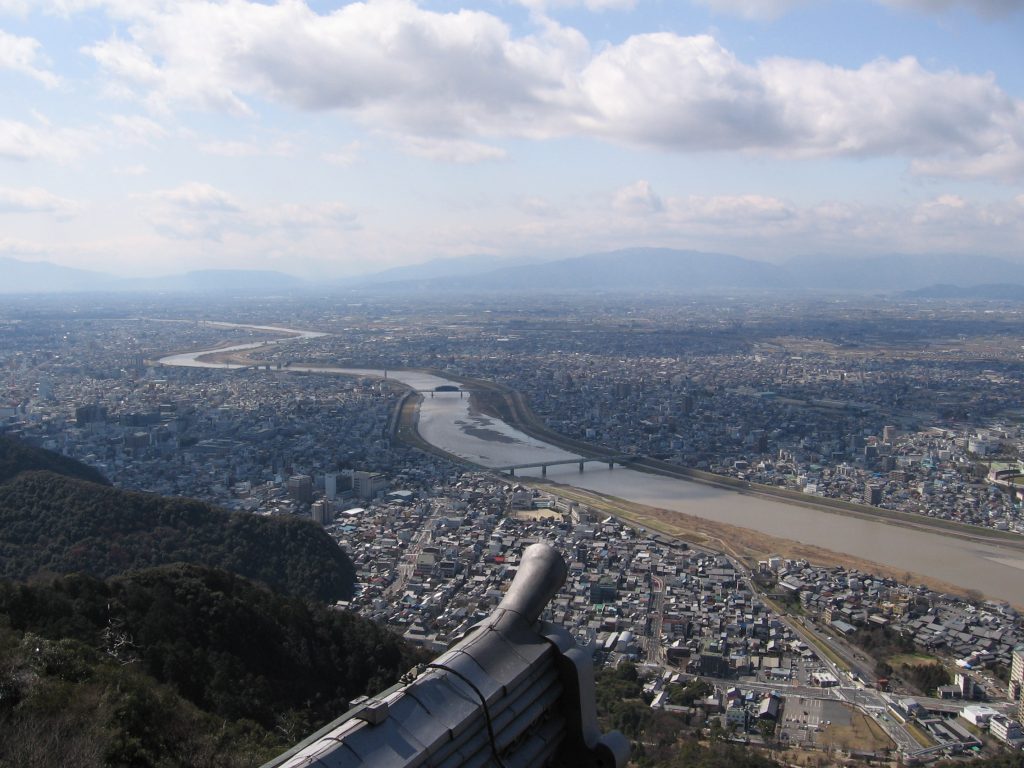
Panoramic view of the Nōbi Plain with Gifu City, Gifu Prefecture seen from the top of Gifu Castle. By Douggers at en.wikipedia, CC BY 2.5, https://commons.wikimedia.org/w/index.php?curid=3616919
Agriculture significantly contributes to Gifu Prefecture’s economy, leveraging its diverse geography that includes fertile plains and mountainous regions. The Nōbi Plain is particularly vital for rice cultivation, with Gifu producing high-quality rice as a staple crop. Horticulture thrives here as well, with renowned products like Fuyu persimmons, pears, and apples.
The challenging terrain has led to greenhouse farming, facilitating high-value crop production such as tomatoes and strawberries. Livestock farming, including cattle, poultry, and pigs, also plays a crucial role. Gifu is famous for its traditional and speciality products, such as the famous Ayugashi (fish-shaped confectionary), which uses local ingredients.
Forestry is another important sector, with sustainable timber production supporting the local economy. Agritourism is on the rise, allowing visitors to engage in farming activities and purchase local products, thus promoting tourism and agriculture.
To support this sector’s being more inclusive, Gifu Prefecture, for one of its welfare policies, is working on ‘agricultural and welfare cooperation’ to promote social participation through the active involvement of people with disabilities and others in the agricultural sector.
The agricultural sector is well-integrated with food processing and distribution, adding value to raw products and enhancing economic stability. Overall, agriculture in Gifu Prefecture is essential for supporting local livelihoods, ensuring food security, and driving a range of economic activities beyond mere crop production.
In April 2022, the Gifu Action Plan for Agricultural and Welfare Cooperation was formulated, and efforts are being made under the five basic policies of (1) promoting understanding and raising awareness, (2) human resource development, (3) strengthening matching between agriculture and welfare needs, (4) creating an environment where people with disabilities can work easily, and (5) improving brand power and expanding sales channels.
Recent progress for people with disabilities in Japan includes significant policy and societal advancements. The 2016 Act on the Elimination of Discrimination against Persons with Disabilities and the 2014 ratification of the UN CRPD underscore Japan’s commitment to inclusivity. Education and employment opportunities have improved, with more inclusive schools and incentives for companies to hire disabled individuals. Technological advancements, such as assistive devices and better infrastructure, have enhanced accessibility. Disability advocacy groups are also actively promoting awareness and policy changes. While challenges like physical accessibility and social stigma remain, these efforts mark substantial steps towards a more inclusive society.
The Government of Gifu also implements projects that contribute to the facilitation of such initiatives, such as organising events that make use of agri-products produced, supporting the establishment of distribution systems, subsidising the cost of introducing equipment necessary for the development of a comfortable working environment for people with disabilities and supporting the acceptance of personnel through the dispatch of experts.
In April 2024, the Gifu Agriculture and Welfare Promotion Centre was opened as a one-stop contact point for agriculture and welfare cooperation, and efforts are being made to further expand the potential of agriculture and welfare. The government is promoting initiatives to enable people with disabilities to play an active role in the agricultural sector.

